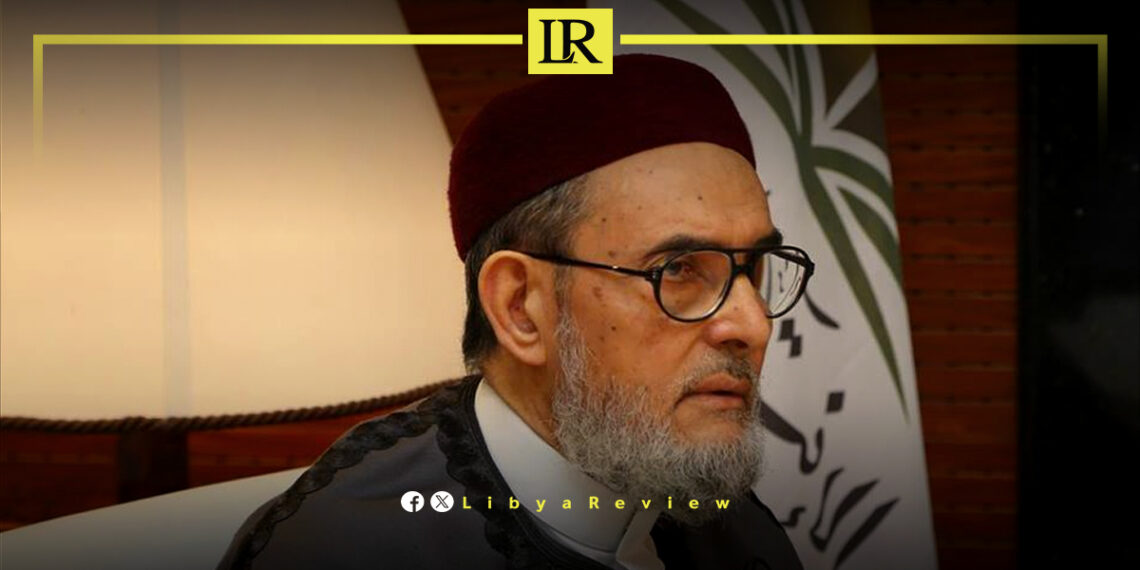Over the past decade, Libya’s former Grand Mufti, AlSadiq Al-Ghiryani, has been a highly polarizing figure whose influence has been used to promote division and conflict.
Appointed in 2012 and dismissed in 2014, Al-Ghiryani has continued to push his views through his media organization, the Tanasuh Foundation for Preaching, Culture, and Media.
His platform, known for its alignment with Libya’s Muslim Brotherhood (MB), has played a role in promoting incendiary messages, often calling for attacks on the Libyan National Army (LNA) and aligning with foreign agendas that many Libyans see as further destabilizing a country already fractured by years of civil conflict.
The former Mufti, while not an official member of the Muslim Brotherhood, has regularly aligned himself with the group’s ideals and influence.
His public statements and religious edicts have gone beyond traditional religious guidance, instead encouraging violence, fueling political unrest, and targeting individuals and organizations seen as opposing his worldview.
Al-Ghariani’s influence extends beyond Libya’s borders, as he spent years residing in Turkey, where he continued to broadcast messages to Libyan audiences.
His return to Libya recently has only intensified his rhetoric, as he now openly urges the Government of National Unity (GNU), led by Prime Minister Abdul Hamid Dbaiba, to take military action against Libya’s eastern government supported by the House of Representatives and the LNA.
Al-Ghiryani’s latest statements also advocate for taking control of Libya’s eastern oil fields, a move that risks pushing the country toward more conflict.
Al-Ghiryani’s controversial history is marked by inflammatory religious edicts, or fatwas, that have sparked public outcry and alarmed human rights advocates.
For example, he supported the October 2017 bombing of a Misrata courthouse, describing it as divine retribution for unresolved court cases.
He has endorsed attacks on Libya’s Oil Crescent, a vital oil-producing region, and has encouraged residents in cities such as Ajdabiya, Benghazi, and Derna to join extremist groups against the Libyan National Army. These actions have had profound effects, contributing to Libya’s persistent instability and security challenges.
The former Mufti has also openly called for the targeting of LNA personnel following military actions against extremist factions, allegedly facilitating weapons supplies to militias in their fight against LNA forces. His actions and influence, many critics argue, have prolonged conflict, undermined peace efforts, and weakened Libyan unity.
Among his more controversial edicts, Al-Ghiryani once advised Libyans to forgo repeated pilgrimages to Makkah, suggesting that the funds be used instead to support militias fighting against the LNA. He has also led regular protests against the United Nations Mission in Libya, labeling it an enemy of stability and demanding its removal.


